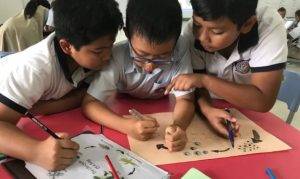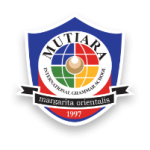The ability to speak multiple languages is a wonderful thing to behold, especially in children.
Bilingualism and multilingualism go beyond educational trends. They are key to unlocking cognitive and social benefits that can last a lifetime.
At an international primary school like Mutiara International Grammar School (MIGS), our students are no strangers to conversing in more than one language. We’ve built an immersive environment that naturally nurtures language development for both local and overseas learners.
Today, let’s take a look at the advantages of multilingual education and how educational institutions in Malaysia like MIGS cultivate these skills to prepare your child for a globalised future.
Bilingualism & Multilingualism: Why is the Ability to Speak More Than One Language Good?

Learning more than one language does wonders for your child’s brain. It has a profound impact on their cognitive development:
- Enhanced Cognitive Flexibility
According to the American Academy of Neurology, bilingual individuals show better cognitive abilities as they age, including improved memory and problem-solving skills. For children, this translates into enhanced mental flexibility, enabling them to adapt to new situations more easily and think creatively when faced with challenging tasks. - Academic Advantage
Bilinguals are natural multitaskers. Research shows a link between multilingualism and better performance in non-language subjects like Mathematics and Science. When switching between languages, they practise mental agility, which helps them navigate complex equations and concepts. This is because learning additional languages strengthens the neural pathways associated with logical thinking and critical analysis. - Social Awareness
Beyond cognitive perks, knowing more than one language fosters global awareness, empathy, and inclusivity. In a culturally diverse country like Malaysia, being able to communicate in different languages allows our students to connect with peers from various backgrounds. It facilitates a deeper understanding and appreciation of different perspectives.
For overseas pupils studying in an international school in Malaysia, learning local languages like Malay offers an added bonus. It bridges gaps that might otherwise exist when they first started. They can integrate more smoothly into the local culture and community, making friends and feeling more at home.
Classrooms in MIGS: Language Immersion in an International Environment

So how do international schools like MIGS create a language-rich environment? It’s all about immersion.
To begin, English is the main language of instruction. This helps all of our students enhance their fluency naturally. From classroom discussions to casual conversations during recess, English is used. This constant exposure enables students to build confidence in using the language in and out of the classroom, unconfined to only textbooks and grammar drills. The goal is not just to learn English, but to employ it effectively in every facet of language use—be it reading, writing, listening or speaking.
For non-native English speakers, the initial transition may present a challenge. Recognising this, our international school in Kuala Lumpur provides support programmes like English as an Additional Language (EAL) to help students catch up. In time, a solid foundation in English is built, enabling them to participate fully in classroom activities and succeed academically.
As mentioned, the language culture at MIGS extends beyond English. Students are encouraged to practise multiple languages in their daily interactions. It could be a chat in Malay, exchanging greetings in Mandarin, or even discussing weekend plans in French. With multiple languages bouncing around, they develop sharp minds ready for a globalised world. This transforms language learning from a mere academic exercise or memorisation task into a practical, lived experience.
English as a Lingua Franca: The Importance of Finding Common Ground

Did you know that English is often called the “lingua franca” of the world? It refers to a language adopted as a common language between speakers whose native languages are different.
As the most spoken language in the world with 1.5 billion speakers, English functions as the bridge language for international communication. It is extensively used in countries where it is not the national language, such as the Netherlands, Germany, and Singapore. Over 50% of their populations speak English proficiently for business, higher education, and daily exchange. Even in countries like South Korea, English is heavily incorporated in higher education and international trade, while in India, it is used widely across government sectors, the field of education, and commerce.
This demonstrates the global relevance of English in diverse non-native contexts. Mastering the language inevitably opens doors to academic opportunities, global career paths, and many other prospects.
One of the unique advantages of learning English in an international school setting is the exposure to different accents and dialects. Much like many other languages, English has rich historical roots that resulted in a wide variation in its pronunciation depending on region and cultural influences. This diversity enhances our students’ language learning at MIGS, enabling them to become more adaptable and proficient communicators in a global setting.
Beyond Mother Tongue: Second and Third Language Opportunities at an International Primary School
MIGS makes a strong contender among schools in Malaysia for international students. While English serves as the cornerstone, we go further by offering students the chance to explore additional languages, such as Malay, Arabic, Mandarin or French.
- For our overseas learners, learning Malay is a compulsory part of the curriculum This ensures they gain a meaningful understanding of Malaysia’s culture and society. Familiarity with Malay helps with acclimating to life in Malaysia. Who knows? Your child might just surprise you the next time you’re doing grocery runs in the market.
- For our Malaysian students, many are already bilingual or multilingual from a young age. However, they can still benefit from our language programmes to refine their linguistic skills. Whether they wish to delve deeper into Mandarin or Malay, take on the challenge of learning a new language like French, or improve their English proficiency, the options are available.
This inclusive approach aligns with the school’s commitment to promoting multilingualism as a valuable skill in modern times. It encourages students from all backgrounds to welcome the joy of language learning and celebrate their diverse cultural heritage, not to mention enriching their social experiences and broadening their worldviews. To recognise students’ abilities MIGS also offers various languages with the renowned IGCSE international qualifications framework. Students have gained qualifications in Arabic, Malay, Mandarin and French!
While mastering English is essential, it’s equally important not to neglect your child’s mother tongue. By doing so, they strengthen their cultural identity and broaden their overall linguistic abilities.

Searching for an International School for Your Child? Think Mutiara
Language is the road map of a culture. In an increasingly interconnected world, being bilingual or multilingual is a great asset. The cognitive, social, and cultural benefits of multilingualism set students up for success, both in their learning journey and future careers.
International primary schools like MIGS are able to create a climate where both local and overseas students can develop this advantage. Through immersion, practical use, and diverse language offerings, your child is one step closer to becoming a confident communicator and global citizen.
For more information about our curriculum or international school fees in Malaysia, don’t hesitate to contact us now or schedule a tour to visit our school.


